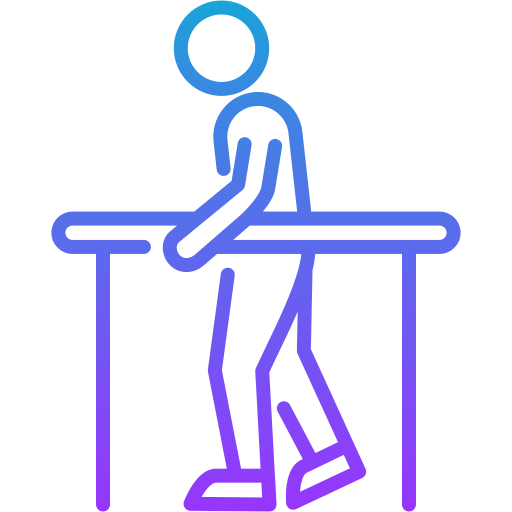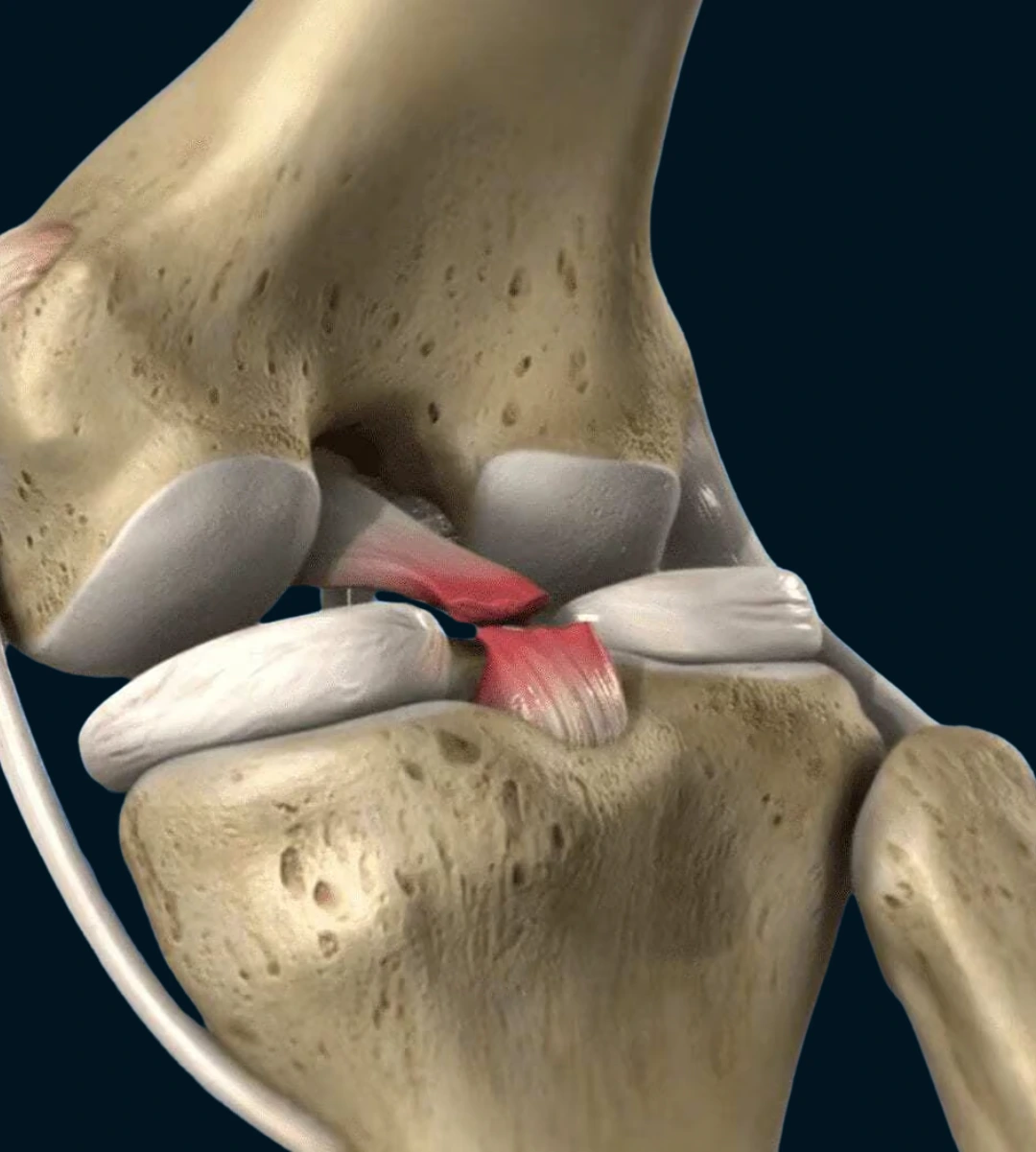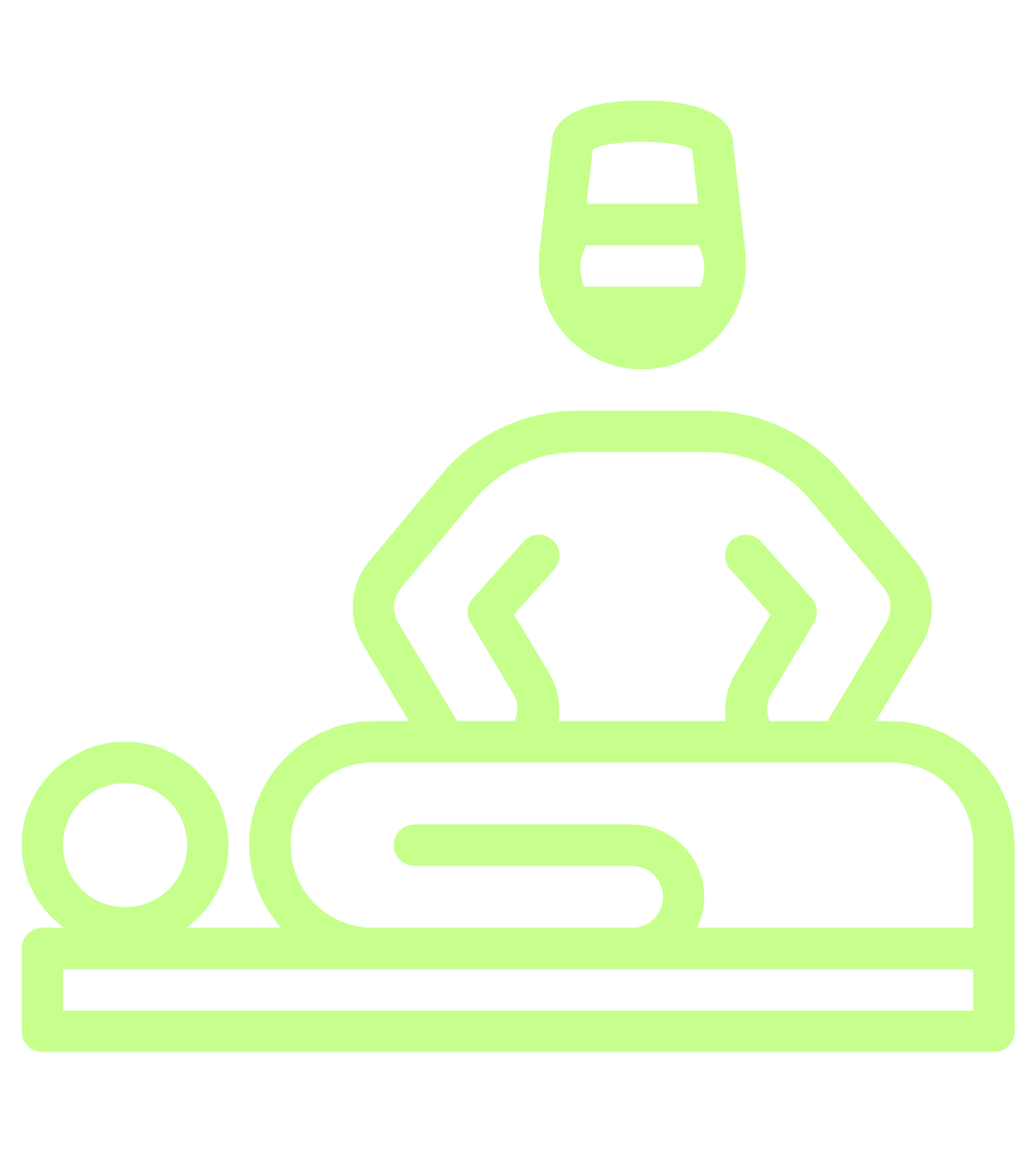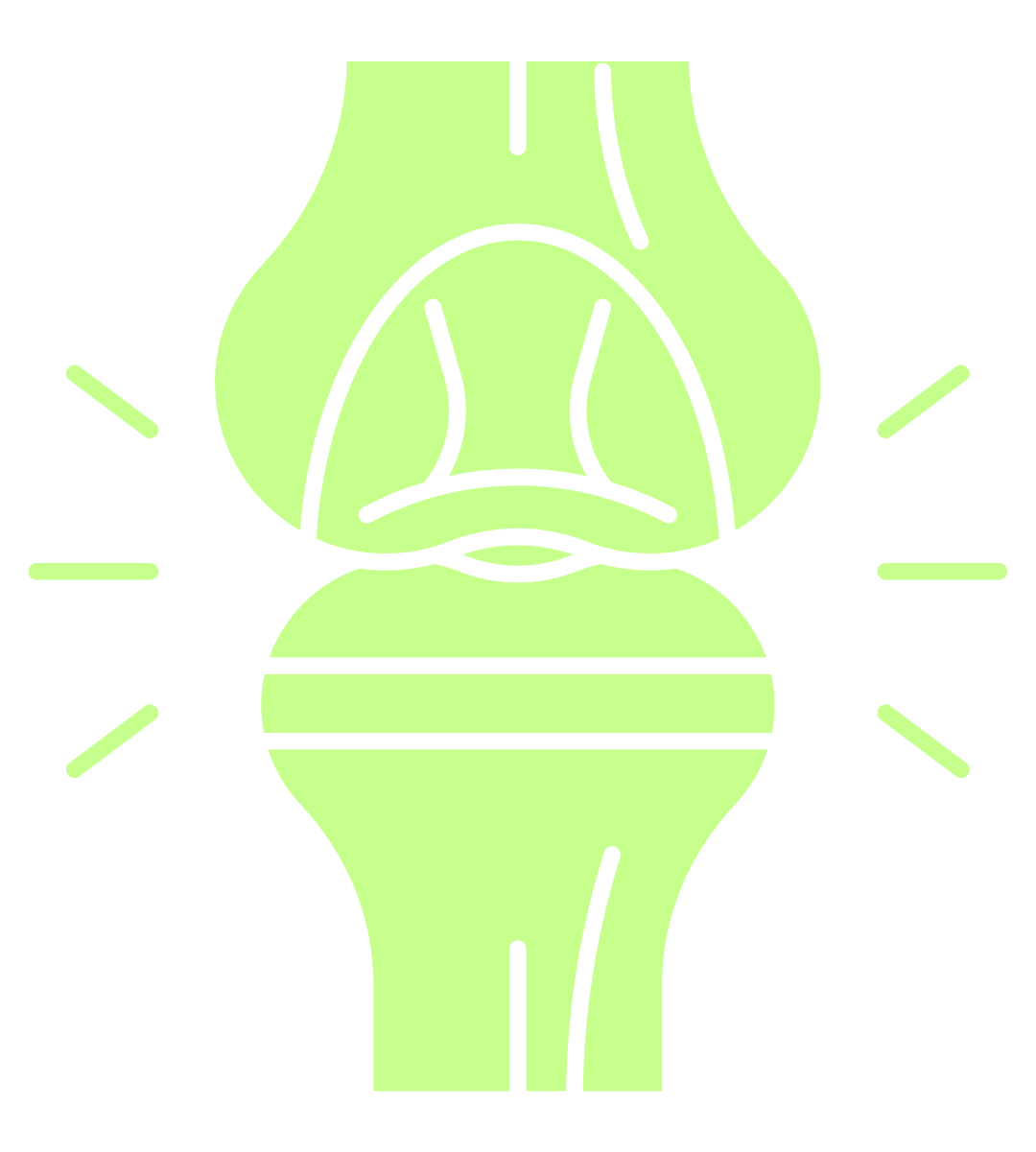Dr. Apoorv Dua
Recovering from ACL & PCL Injuries: Surgical Solutions for a Stronger Knee
Dr. Apoorv Dua, a renowned orthopedic surgeon in South Delhi, specializes in a minimally-invasive approach to performing arthroscopic ACL and PCL reconstruction surgeries, ensuring quicker recovery times and enhanced patient outcomes.
- Minimally-Invasive ACL & PCL Surgeries
- Faster Recovery, Better Results
- Cutting-Edge Orthopedic Treatments
- High Success Rate
- Personalized Treatment Plans for Every Patient
Consult a Doctor

ACL Injury
As you know, orthopedics is a branch of medical science that covers all the musculoskeletal conditions and arthroscopic ACL (Anterior Cruciate Ligament) reconstruction deals with treating the problems related to your torn ACL. According to various proficient orthopedic doctors in South Delhi, 45% of your ACL injuries are because of sports and if not addressed correctly, they can cause long-term damage to your ligaments and bones.
Dr Apoorv Dua who is a renowned orthopaedic surgeon in South Delhi has a minimally-invasive approach to minister your arthroscopy ACL reconstruction. Basically, arthroscopy is a surgical procedure where a special camera and surgical tools are inserted into the knee through small holes. Arthroscopic ACL surgery is commonly referred to as “keyhole surgery”. The big advantage is that the surgeon can assess the joint and repair any injuries without needing to fully open the joint. This speeds up recovery due to less trauma to the knee. You cannot disregard the best arthroscopy surgeons in South Delhi.
Know More
About ACL Injury
-
 Symptoms
Symptoms
-
 Diagnosis
Diagnosis
-
 How We Perform
How We Perform
-
 Why Is Treatment Needed?
Why Is Treatment Needed?
-
 Recovery
Recovery
-
 Rehabilitation
Rehabilitation
-
 Prevention
Prevention
ACL injuries often occur during high-impact sports or activities involving sudden stops, jumps, or twists of the knee. Common symptoms include severe pain, knee swelling, instability, and difficulty walking or bearing weight. These injuries can range from mild sprains to complete tears that require surgical intervention.
Key Points:
- High-risk sports (e.g., soccer, basketball)
- Sudden direction changes
- Symptoms include pain and swelling
- Knee instability is a major sign
- Difficulty in weight-bearing or walking
To confirm an ACL injury, our specialists conduct a comprehensive physical examination along with diagnostic imaging, such as X-rays or MRI. These tests allow us to determine the severity of the injury and create a tailored treatment plan for each patient, focusing on achieving optimal recovery outcomes.
Key Points:
- Physical examination for knee instability
- MRI to detect ligament damage
- X-rays to assess bone structure
- Custom treatment plans based on diagnosis
- Experienced orthopedic team
During the procedure, the surgeon uses an arthroscope to guide the repair or reconstruction of the torn ACL using grafts from the patient’s own body or a donor. This precise technique ensures minimal disruption to surrounding tissues, leading to a quicker recovery and a return to normal activity.
Key Points:
- Arthroscope-assisted surgery for precision
- Small incisions minimize tissue damage
- Use of grafts (autograft or allograft)
- Outpatient procedure in most cases
- Faster recovery compared to open surgery
The knee joint consists of a complex combination of bones, tendons, ligaments, and other tissues that function together. Thus, prompt ACL tear treatment is essential to avoid complete knee failure. If treatment is delayed, the following consequences may occur:
Key Points:
- Chronic ACL Deficiency
- Heightened Knee Instability
- Frequent Knee Give-Outs
- Intense Pain
- Early Osteoarthritis
Recovery begins immediately after surgery with physical therapy to regain knee strength and flexibility. Depending on the severity of the injury, most patients can resume light activities within a few months, with a return to sports or high-impact exercises after 6-9 months. Consistent rehabilitation is key to a full recovery.
Key Points:
- Initial physical therapy within days
- Strength training for knee muscles
- Gradual increase in activity level
- Return to sports within 6-9 months
- Ongoing monitoring and support
We provide a personalized rehabilitation plan tailored to your specific needs. Post-surgery care focuses on reducing swelling, improving range of motion, and strengthening muscles around the knee. Our team works closely with patients to ensure a successful recovery, minimizing complications and maximizing long-term knee function.
Key Points:
- Personalized rehab plans
- Emphasis on strength and flexibility
- Post-surgery monitoring for optimal results
- Focus on pain management and mobility
- Long-term follow-up to ensure progress
Prevention is vital for maintaining knee health, especially for athletes. We offer guidance on strengthening exercises and techniques to reduce stress on the ACL. Proper warm-up routines, wearing appropriate footwear, and avoiding risky movements can greatly reduce the chances of re-injury.
Key Points:
- Strengthening exercises for knee stability
- Importance of proper warm-ups
- Wearing supportive footwear during activity
- Focus on movement technique and agility
- Education on avoiding high-risk actions

PCL Injury
The Posterior Cruciate Ligament (PCL) plays a crucial role in stabilizing the knee joint, connecting the upper leg (thighbone) to the lower leg (shinbone). Though it’s larger and stronger than the Anterior Cruciate Ligament (ACL), the PCL is still vulnerable to injury, especially from sudden force or trauma. When the PCL is sprained or torn, it can cause symptoms such as pain, swelling, instability, and difficulty moving the knee. If you’ve experienced a PCL injury, it’s important to seek timely medical attention for proper diagnosis and treatment. Early intervention can significantly improve recovery outcomes.
Dr. Apoorv Dua, a leading orthopedic surgeon in South Delhi, specializes in minimally-invasive posterior cruciate ligament (PCL) surgeries. This advanced technique allows precise injury repair with minimal joint disruption, speeding up recovery. Choose Dr. Dua for expert care and a faster, more efficient recovery.
Know More
About PCL Injury
-
 Symptoms
Symptoms
-
 Diagnosis
Diagnosis
-
 How We Perform
How We Perform
-
 Why Is Treatment Needed?
Why Is Treatment Needed?
-
 Recovery
Recovery
-
 Rehabilitation
Rehabilitation
-
 Prevention
Prevention
People with PCL injuries may experience a wide range of symptoms, including:
- Pain that worsens over time.
- Swelling and inflammation.
- A feeling of instability in the knee.
- Stiffness.
- Difficulty walking.
- Trouble going down the stairs.
When you visit your healthcare provider for a knee injury, they will start by conducting a thorough examination. Your provider will assess the range of motion in your knee and ask detailed questions about your symptoms. This helps them understand the extent of the injury.
To gain a clearer picture of the damage, your healthcare provider may recommend imaging tests, including:
- X-rays: To identify bone fractures or joint issues.
- MRI (Magnetic Resonance Imaging): To evaluate soft tissue damage, such as ligaments or cartilage injuries.
- CT (Computed Tomography) scan: Provides a more detailed view of bones and soft tissues.
These tests are essential in creating a personalized treatment plan for you, ensuring the most effective recovery.
At Dr. Dua’s Speciality Clinic, we specialize in advanced treatments for PCL injuries. Whether caused by sports or trauma, we assess the injury thoroughly using state-of-the-art imaging. Our expert team offers tailored rehabilitation and surgical options, including arthroscopic techniques, to ensure a quick and effective recovery.
A Posterior Cruciate Ligament (PCL) injury can significantly impact knee stability, affecting your ability to walk, run, or even climb stairs. Treatment is necessary to prevent long-term damage to the knee joint, restore function, and reduce pain. Without intervention, PCL injuries can lead to chronic instability, early onset arthritis, and reduced mobility. Whether through physical therapy or surgery, timely treatment helps ensure better outcomes and a quicker return to daily activities.
Recovery time can vary from person to person. If your injury is mild, it may only take about 10 days to heal. If you’ve had surgery to repair your PCL, recovery could take about six to nine months.
If you’ve injured your PCL, there are ways to ease discomfort and promote healing. Recommendations include:
- Rest: Avoid any activity that places unnecessary stress on your knee.
- Ice: Apply a cold compress to the knee for 15 minutes, four times a day.
- Compression: Wrapping your knee in an elastic bandage helps reduce swelling.
- Elevation: Prop your leg up on a pillow so it’s above the level of your heart.
- Pain relievers: Take non-steroidal anti-inflammatory drugs (NSAIDs) to ease pain and swelling.
It can be difficult to prevent PCL injuries altogether. However, there are several things you can do to reduce your risk:
- Stretch before physical activities to keep your knee joints healthy.
- Use proper techniques when walking or running.
- Stay alert and use caution when playing sports.
WHY US?
Why Choose Dr. Apoorv Dua
At our clinic, Dr. Apoov Dua leads the way in providing expert care for Arthroscopic ACL Reconstruction. With years of experience in orthopedic surgery, Dr. Dua specializes in minimally invasive techniques that promote quicker recovery and better long-term outcomes.

70,000+
Patients Experience

25,000+
Procedures

60,000+
Trauma surgeries

5000
Joint Replacement Surgeries
Check Surgery Cost
We believe in transparency. You can enquire about the Surgery Cost and we will help you with complete detailed treatment process till your recovery.
Frequently Asked Questions
Arthroscopic ACL Reconstruction is a minimally invasive surgery to repair a torn ACL in the knee, restoring stability and function using small incisions and advanced tools.
Patients with a torn ACL, especially those experiencing knee instability or leading an active lifestyle, are good candidates for this surgery.
The procedure typically takes 1-2 hours, depending on the complexity of the injury and the type of graft used for reconstruction.
Yes, most patients can go home the same day after surgery, allowing them to begin recovery in the comfort of their own home.
Recovery can take 6-9 months, depending on the patient’s rehabilitation and commitment to physical therapy. Athletes may take longer to return to sports.
A PCL injury refers to damage to the posterior cruciate ligament, one of the key ligaments in the knee that connects the thigh bone (femur) to the shin bone (tibia). It helps stabilize the knee joint.
Not all PCL injuries require surgery. Minor injuries may be treated with rest, physical therapy, and bracing. However, more severe injuries or those that result in knee instability may require surgical intervention to repair or reconstruct the ligament.
With proper rehabilitation and clearance from a healthcare professional, many individuals can return to sports. However, the timeline varies depending on the severity of the injury and the type of sport.
If left untreated, a PCL injury can lead to chronic knee instability, arthritis, and an increased risk of further damage to other structures in the knee, such as cartilage and other ligaments.
- Grade 1 (Mild): Slight stretching or microscopic tears in the ligament.
- Grade 2 (Moderate): Partial tear of the ligament.
- Grade 3 (Severe): Complete rupture of the ligament.
What Our Patients Say
Based on 160 reviews









